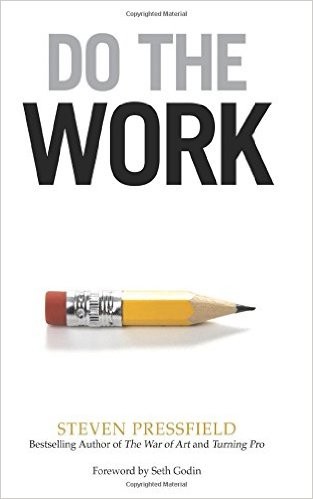Where You Go Is Not Who You’ll Be
 I picked up this book in a Kindle Daily Deal a week or two ago. Subtitled An Antidote to the College Admissions Mania, it looked engaging and relevant. Turns out it’s definitely engaging, and it’s relevant in some ways. But its specific focus is on parents and teens who obsess over getting into an Ivy League college, so I couldn’t relate much to that. For one thing, the costs of college are an issue we have to consider, unlike the people in line for Yale and Harvard. For another, the name of the school doesn’t really matter. Our goal for our kids is a sound college education in which they can think about a range of ideas, discover who they are and who they are called to be, build some independence, and lay a foundation for a meaningful life. I’m not someone who sees college exclusively as career training, but it should help to prepare students for a profession and help them to imagine some directions they might go.
I picked up this book in a Kindle Daily Deal a week or two ago. Subtitled An Antidote to the College Admissions Mania, it looked engaging and relevant. Turns out it’s definitely engaging, and it’s relevant in some ways. But its specific focus is on parents and teens who obsess over getting into an Ivy League college, so I couldn’t relate much to that. For one thing, the costs of college are an issue we have to consider, unlike the people in line for Yale and Harvard. For another, the name of the school doesn’t really matter. Our goal for our kids is a sound college education in which they can think about a range of ideas, discover who they are and who they are called to be, build some independence, and lay a foundation for a meaningful life. I’m not someone who sees college exclusively as career training, but it should help to prepare students for a profession and help them to imagine some directions they might go.
So while I couldn’t relate to the “mania” to get my kid into the Ivies, I did value this book for its exploration of what a college education can be — and also what it isn’t: a certificate of entitlement, a single hoop to jump through to get to a cushy “rest of your life,” an identity forever branded by an institution.
So what constitutes true success? Over and over, the book points to initiative as key. Even if, as the research shows, a college degree increases your chances of a good job, the degree alone isn’t enough to make you succeed. As Bruni explains in summarizing an interview with Condoleeza Rice,
There’s a transcendent importance — all too frequently overlooked — in how fully students throw themselves into the college experience and how much they demand and extract from whichever institutions they wind up at. Great educations aren’t passive experiences; they’re active ones.
Along with initiative, self-knowledge and passion matter when a student is looking to the future. There are plenty of colleges in this country that offer a wide range of programs, as well as other highly specialized niche schools. Some offer honors tracks; others excel in international study opportunities; still others focus on the classics or provide narrative evaluations rather than standard transcripts. There are schools for the arts, and schools for the sciences. Today’s students are sophisticated consumers who apply everywhere in hopes of having a range of options, but their energy might be better spent figuring out who they are and what environment is the best fit for them. Joel Benenson, chief pollster for the 2008 Obama campaign and strategist for Hilary Clinton, suggests that young people shouldn’t think too much “about what you want to do for the rest of your life. Think about what you want to do next.” There are any number of interesting interviews that Bruni draws from, and most of them suggest that life often can’t be plotted out on a graph and pursued in linear fashion.
There are other aspects of the college admission industry that Bruni details as well. Most of them didn’t surprise me:
- that exclusivity has become a badge of honor, so colleges seek out as many applicants as possible so they can say they accept only a small percentage of them;
- that standardized test scores are disproportionately important;
- that money plays a huge role in acceptance, whether through legacy students whose parents make donations, applicants whose wealth makes them a promising potential donor in the future, or international applicants whose families can afford full price;
- that there are any number of games that can be played to polish a transcript or an essay;
- that the US News and World Report rankings hold far too much sway — and don’t really mean anything.
While the information was all interesting, for me the stories and interviews were the heart of the book. They remind us of the great variety of paths we can choose from and provide both inspiration and perspective. An attitude of adventure, a willingness to seek out and explore opportunities, and an ability to relate to people can outweigh the institution on the transcript. I liked the tales of students who forged relationships with faculty members that influenced their course in life; I liked the tales of students who got rejected by the big name schools and ended up thriving in the more diverse environment of a public institution; I liked the words of wisdom and reflection scattered among the pages.
There’s a dark side to this book, too: it’s a stark affirmation that America has an aristocracy. The privileged who agonize over which Ivy League school to attend inhabit an elite sphere of wealth and influence that most people will never see. They pass it on to their children, and to the well-heeled institutions that validate their sense of entitlement. When I read Decision Points, George W. Bush’s memoir, I picked up a similar sense of the inevitability of belonging to the elite. So although the book offers some very real inspiration, at times it also strikes an odd, discordant note by juxtaposing the myth of individualism/enlightened self-invention against the gated determinism of the topmost tier.
On a more positive note, I’ll conclude with a few of my favorite descriptions of what the college years can be. There’s definitely more involved than forking over a large sum and getting a “job” in return:
College is a singular opportunity to rummage through and luxuriate in ideas to give your brain a vigorous workout and your soul an investigation, to realize how very large the world is and to contemplate your desired place in it. (Frank Bruni)
There’s something magical about that time, and it’s not primarily that you’re living among all your friends or… the beauty of the campus or the first taste of something verging on adult independence. It’s the permission to sit still, to think. It’s the lull, the space and the freedom for that. (John Green, partly in his own words and partly in Bruni’s paraphrase)
By the time I got out of law school, nobody asked me where I went to college. They didn’t care. Everybody goes to college, and with the exception of maybe a few brands, you don’t really know what that means, wherever they went… [The degree is no substitute for] important life skills [like] the ability to relate to people. To be comfortable with risk. To manage ambiguity and to be resilient. Are you prepared to bet on yourself? Are you prepared to show up?” (Dick Parsons)
When I was a senior in high school, I had a conversation with a man at church who asked me about how my college search was going. It embarrasses me now to think of how long I must have gone on about which major to choose, but he listened patiently and then, finally, responded, “Life is really quite long. I’m sure it’ll work out.” He was right. This book is recommended for anyone who needs a similar dose of perspective and sanity by reinforcing what we may already know, but need to remember.



One Comment
Michele Morin
I remember agonizing (as you apparently did, too) about all decisions related to college. I could still spend a few wasted minutes lamenting choices and pondering what-ifs.
Somehow my kids (so far) have escaped that, and for this I am truly grateful.